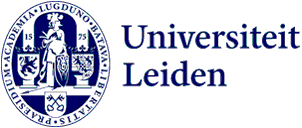
Why our faculty is the place to be
Since the beginning of September, it is a fact: our faculty has a new strategic plan. The plan outlines what we will collectively commit to in the coming years. Is that important? For sure, say our directors Suzanne van der Pluijm (Operations) and Bart de Smit (Education). ‘The purpose of a strategic plan is that you all move in the same direction. Moving forward together. And we see that happening now.’
Are you satisfied with the new plan?
Suzanne: ‘What makes me happy is that we are making choices. There is a lot happening in our organization and we are working on many things, but of course we cannot do everything. This plan contains good building blocks that we can stick to for the next five years. That’s really important.’
Bart: ‘What I really like is that teaching and research are side by side in this plan. They are both equally important to our faculty.’

What part of the plan are you most pleased with?
Suzanne: ‘There is no distinction between academic and support staff in this plan, we are all colleagues. It really makes me very happy that we explicitly emphasise that. We wrote down that as a faculty, we think it’s important that everyone enjoys going to work. That applies to everyone, regardless of where you work in the faculty. We contribute together to the common goal of making our research and teaching the best it can be.’
Bart: ‘I totally agree with that. The fact that we are doing it together is essential. The mere fact that we have this plan shows that times are changing. The purpose of such a strategic plan is that we all move in the same direction. Moving forward together. And I see that happening now. We have created this together, with many colleagues from all parts of our organisation. I feel a positive vibe and that gives energy.’
Why should you study at our faculty in the coming years?
Bart: ‘At Leiden Science you can study in a research environment. That's something science faculties offer more than other faculties anyway, but Leiden is very strong in it. What is new is that we are paying more attention to other skills within our study programs. Think of collaboration skills or project management. Of course we train researchers, but also teachers for secondary schools and professionals who contribute to solving social problems, for example.
And also as a lecturer you should be with us. We are really renewing our education. We are going to train and inform our lecturers even better about scientific research on education and didactic methods. We want to encourage them to further develop their teaching based on the research that has been done.’
And what does this plan mean for employees? What can they expect in the coming years?
Suzanne: ‘A lot is happening in our faculty at the moment. A tangible example is the new building. It will be beautiful, it is very inviting and light, and soon it will be arranged in such a way that it will be easy to work together. On the other hand, there are also many colleagues who are not going to the new building. It is just as important that they have a nice place to work.
We have grown enormously as a faculty. There are now many more students and the number of employees has not grown proportionally. This means that not all processes run smoothly. That is something we want to work hard on in the coming period. Getting the basics right. And we have to do that together, simply because knowledge is spread everywhere in the organisation.
Our organisation is so large now that we have to think carefully about where we place tasks. For each process we have to consider whether it can be better handled centrally or at the institute. As a faculty, we are in the middle of this transition process. And it is important that we do this together. It is good to ask ourselves whether we are doing what we need to do and where in the faculty it should be done.’
How will this affect employees?
Suzanne: ‘We are going to work with the implementation agenda through programs and projects. And in this, we will involve those colleagues who know a lot about that particular process. We will ask them to think along on how to organise things best.’
Bart: ‘It is also important that we inform people about what is happening and how things work. Transparency. And that is for all different areas. A very important one is transparency about career opportunities. That it’s fair for you and for your neighbor. And that you know where to find information.’
You sound enthusiastic. So this plan won’t end up in a desk drawer?
Bart: ‘You have to see it this way: actually, this plan sets the agenda for the coming years. The strategic plan is not necessarily concrete, but the implementation agenda is. It says what we are going to do in the coming years and we are all going to work very actively on it.’
Suzanne: ‘I am extremely proud of what we have achieved together in the past year. And we’re not there yet, we haven’t solved everything. But I feel that together with the people walking around on this faculty, we can move forward with this plan. There is real movement, that’s the positive vibe that Bart was just talking about. If you want to move forward as an employee and add value, you will have a great time with us in the years to come!’
Text: Christi Waanders
Pictures: Monique Shaw & Taco van der Eb
